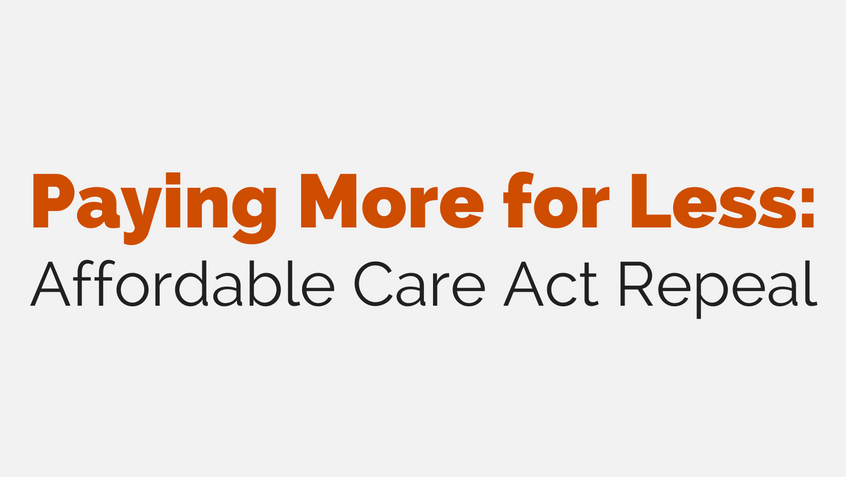
Together with Medicare and Medicaid, the Affordable Care Act (ACA) builds health security for people of all ages. To repeal the ACA and delay a meaningful replacement would force families across the country to pay more for less. Our latest issue brief, “Paying More for Less: Affordable Care Act Repeal,” highlights the harmful consequences of repealing the ACA without an immediate replacement for people with Medicare and for many who are just shy of Medicare eligibility.
Almost 30 million Americans could lose health coverage if the ACA is repealed and a replacement is delayed—this includes nearly 20% of older adults ages 55-64. Medicare eligibility begins at age 65 for most, and people ages 55-64 often find it hard to stay in the full-time job market or to find new employment after a job loss, making access to coverage like the ACA critically important.
Additionally, most proposals to replace ACA coverage would shift drastically higher costs to people in their 50’s and 60’s, such as by allowing insurers to charge them higher premiums. Some of the proposals have no restrictions on how high premiums for older adults can go.
For people who already depend on Medicare, full repeal of the ACA without an immediate replacement plan would have wide-ranging and harmful effects, including:
- Rolling back improvements to the long-term financial outlook for Medicare, likely leading to higher premiums, deductibles, and cost sharing for people with Medicare.
- Reopening the Part D donut hole and hike prescription drug costs. The ACA has saved over $20 billion on prescription drugs for more than 10 million people with Medicare.
- Eliminating new coverage for preventive care. In 2015, around 39 million people with Medicare received at least one low-to-no cost preventive service.
- Undoing consumer protections for people with Medicare Advantage, such as rules to ensure plans spend 85% of premium dollars on care and don’t impose increased costs for key services, like cancer care.
Some recent plans to repeal the ACA would pass the savings on to the wealthiest Americans in the form of tax cuts. To replace the ACA later, Congress would need to find new savings, and this makes Medicaid and Medicare vulnerable to harmful cuts.
Stay tuned, as we will release further briefs in the coming weeks highlighting the impact of various proposals to change to Medicare, including ending the Medicare guarantee through premium support or vouchers; raising the eligibility age; expanding private contracting between doctors and patients to determine the cost of care; and other potential structural redesigns.
The Latest
Most Read
Add Medicare to Your Inbox
Sign up to receive Medicare news, policy developments, and other useful updates from the Medicare Rights.
View this profile on InstagramMedicare Rights Center (@medicarerights) • Instagram photos and videos









